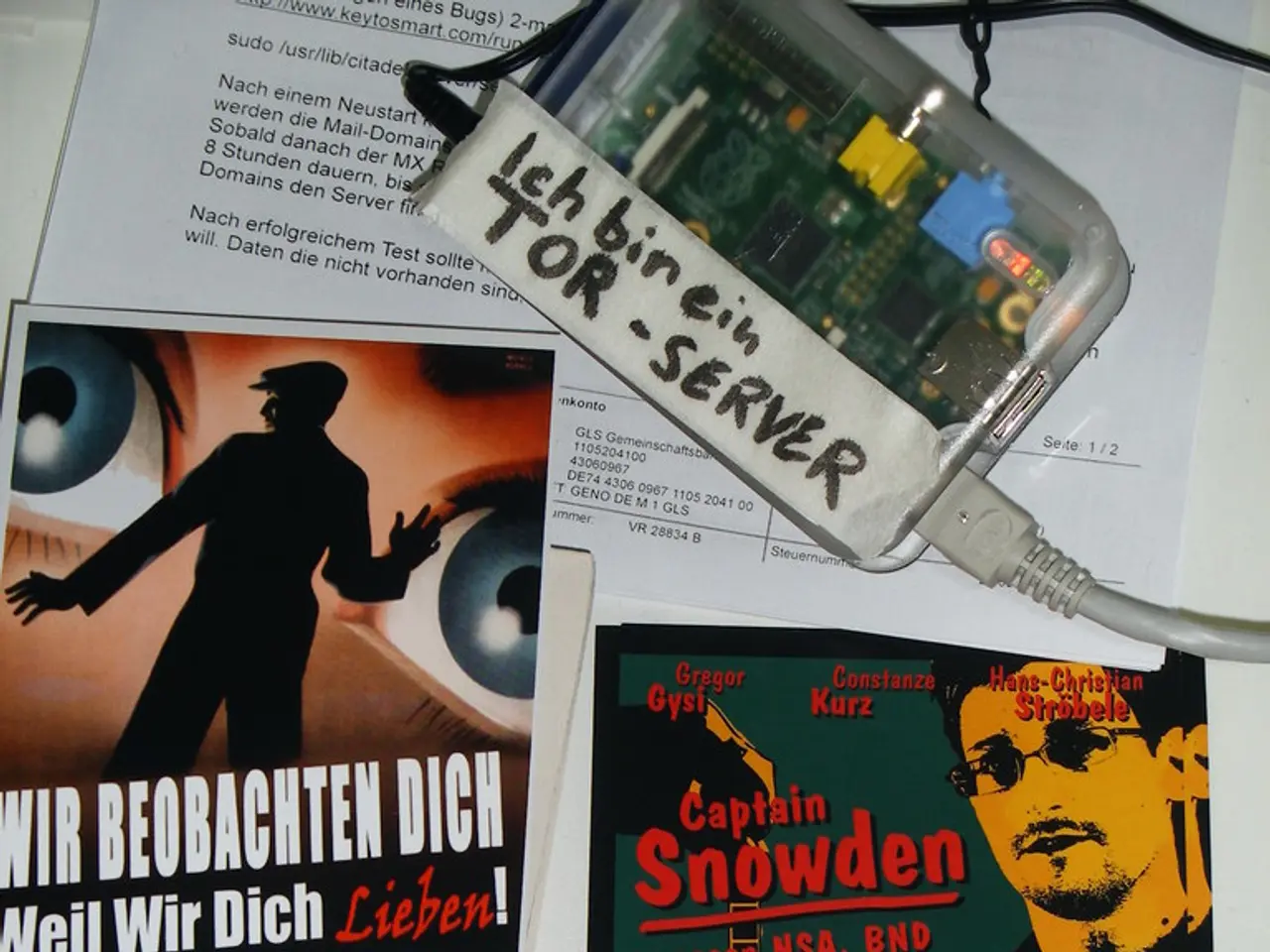Funding secured by Syenta to the tune of $8.8 million for addressing a significant constraint in artificial intelligence development
Australian Startup Syenta Revolutionises Semiconductor Packaging
In the heart of Sydney, a groundbreaking innovation is taking shape. The Australian startup Syenta is making waves in the semiconductor industry with its proprietary Localised Electrochemical Manufacturing (LEM) technology. This technology promises to revolutionise chip packaging, addressing a critical bottleneck in AI and quantum chip performance[1][2][3].
The LEM process combines metal deposition and patterning into a single step, using a stamp electrode with a dielectric pattern that defines localised electrochemical cells. This allows for precision metal deposition only within localised areas, enabling sub-micron interconnect features around 1/100th the width of a human hair[1][3]. The result? High-speed, efficient connections directly on large semiconductor packages (>1000 mm²).
Syenta's LEM technology offers three key advantages that significantly improve AI and quantum chip efficiency:
- Scale down: Fabricating interconnects at or below 1 micron linewidth increases bandwidth by allowing denser and faster connections.
- Scale out: The ability to expand package size (up to 510/600 mm panels with 100–200 mm field size), accommodating larger chip arrays.
- Scale up: Achieving high-volume production throughput, with a process about 3 times as productive as conventional semiconductor manufacturing[3].
By bypassing slower, more expensive traditional processes in chip packaging, Syenta's method accelerates the connection between chiplets, boosting performance and reducing the bottleneck in AI compute[1][3]. The company claims its technology to be world-leading and difficult to replicate, aiming to significantly enhance the efficiency and scalability of next-generation AI and quantum semiconductor chips[1][3].
The brainchild of neuroscientist Dowse, Professor Luke Connal, a global expert in materials science, and Ben Wilkinson, who specialises in photovoltaics and applied physics, Syenta was spun out of ANU in 2022[4]. The startup's co-founder, Viktorova, started building the company half a year into her PhD in 2019[5].
With a team of 30 people spread across Europe, Arizona, and Australia, Syenta has drawn attention from an impressive roster of Australian and international VCs, including Investible, Blackbird Ventures, Jelix Ventures, Brindabella Capital, OIF Ventures, Salus Ventures, Robyn Denholm's Wollemi Capital Group, Singapore's SGInnovate, and Arlington, Virginia-based intelligence VC In-Q-Tel[6].
Syenta's unique solution could potentially have applications beyond AI and quantum chips, unlocking the next generation of technology[7]. The startup has received a major cash infusion to take its next steps forward and put its proprietary Localised Electrochemical Manufacturing (LEM) innovation on the map[6].
As the demand for AI chips soars, and discussions about the importance of sovereign AI reach an all-time high, Syenta's pioneering work in semiconductor packaging could pave the way for a more efficient, scalable, and sovereign future in AI and quantum computing.
[1] Syenta's LEM Technology Unveiled [2] Syenta's LEM Technology: A Game Changer in Semiconductor Packaging [3] Syenta's LEM Technology: Revolutionising Semiconductor Packaging [4] Syenta: A Startup Born at ANU [5] The Founding Story of Syenta [6] Syenta Secures Major Funding Round [7] Syenta's LEM Technology: Beyond AI and Quantum Chips
- In the pursuit of expanding their investment portfolio, Syenta's impressive work in data-and-cloud-computing could attract technology-focused investors, as its LEM technology potentially unlocks efficiency improvements in various sectors.
- With Syenta's groundbreaking LEM technology revolutionising semiconductor packaging, the startup might consider venturing into real-estate investments for data centers, taking advantage of its expertise in high-speed, efficient connections to accommodate large-scale data storage requirements.




